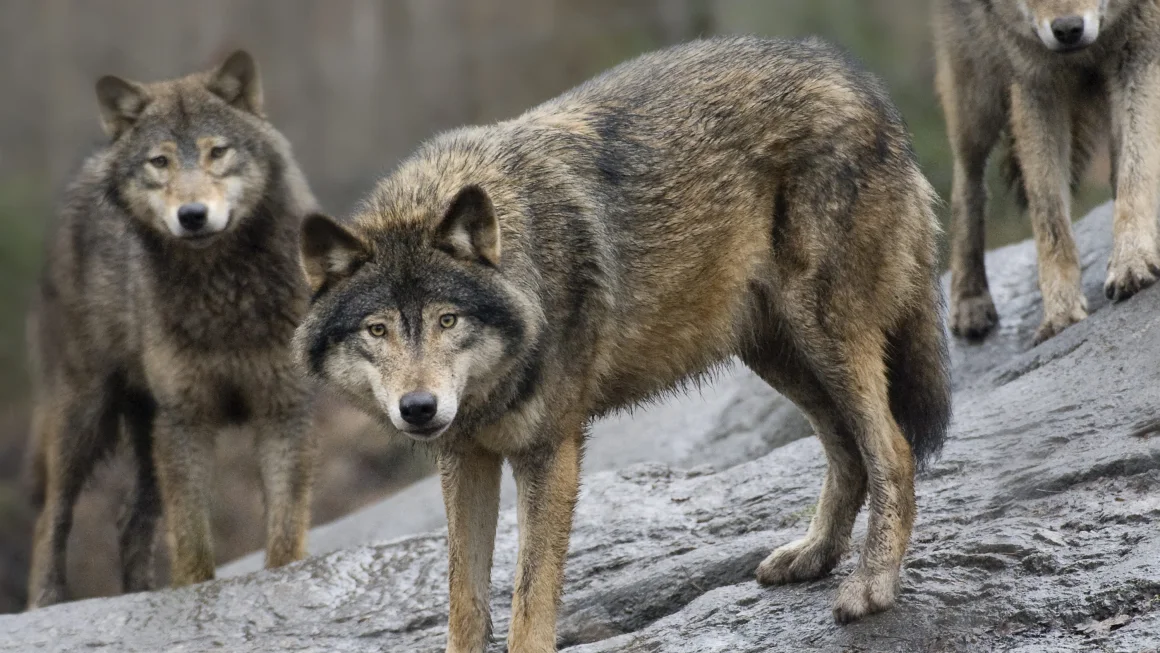“Sweden Approves Killing 10% of Wolves, Plans Even Bigger Cull!”
Sweden has launched its annual wolf hunt, allowing nearly 10% of the country’s endangered wolf population to be killed. Conservationists are alarmed by the policy, arguing it undermines efforts to protect the species and may violate European Union laws.
Since 2010, Sweden has permitted wolf hunting under a licensed quota system. Conservation groups have filed complaints with the EU Commission, which is reviewing Sweden’s adherence to EU conservation rules.
The nation’s wolf population, hunted to near extinction by the 1970s, made a slow recovery under EU protection laws. However, the government now permits the culling of 30 wolves out of an estimated 375, citing safety concerns for rural residents and livestock.
Sweden aims to reduce the minimum wolf population from 300 to 170, calling this new target a “favorable reference value” under its Environmental Protection Agency guidelines. Critics argue this drastic reduction jeopardizes a species already classified as “highly threatened” on Sweden’s Red List of endangered species.
Adding to conservationists’ concerns, the Council of Europe’s Bern Convention committee recently voted to lower the protection status of wolves across Europe from “strictly protected” to “protected.” This decision grants member states more leeway in managing wolf populations.
The World Wide Fund for Nature (WWF) condemned the move, calling it a “serious misstep” lacking scientific justification. Conservationists warn that shrinking wolf numbers will heighten genetic risks for the population.

Staffan Widstrand, managing director of Wild Wonders International, criticized Sweden’s approach, accusing the government of harboring “anti-wildlife sentiment” and adopting a more aggressive anti-carnivore policy compared to previous administrations.
Hunters, who represent just 3% of Sweden’s population, wield significant political influence, according to Magnus Orrebrant, Chair of the Swedish Carnivore Association (SCA). He believes wolves are being used as a political tool in Sweden’s tightly contested elections.
The country’s rural affairs minister, Peter Kullgren, confirmed that the current government has been reshaping wolf policy since coming to power in 2022. Sweden also allowed the culling of 20% of its brown bear population in 2024, reflecting a broader trend in its wildlife management policies.
Conservationists argue that one of Europe’s wealthiest and most spacious countries should be able to coexist with its wildlife. Critics fear the continued culling will harm biodiversity and Sweden’s commitment to environmental conservation.
Wolves in Europe: A Growing Divide Between Conservation and Conflict
Anti-wolf sentiment is spreading across Europe, driven by growing concerns over livestock safety and rural livelihoods.
In 2022, a wolf killed a pony belonging to European Commission President Ursula von der Leyen, prompting her to label the increasing concentration of wolf packs in some regions a “real danger for livestock and potentially also for humans.” Her remarks, made in 2023, sparked backlash from conservation groups like the WWF, which called them “misleading” and “not based on science.”
Von der Leyen welcomed the recent decision by the Bern Convention committee to downgrade wolves’ protection status across Europe, describing it as “important news for our rural communities and farmers.” She emphasized the need for a “balanced approach” between wildlife preservation and protecting livelihoods.

While Europe’s wolf population has grown, conservationists see this as a success story. There are now about 1,500 wolves in Germany, 3,300 in Italy, and even 120 in densely populated Belgium. Wild Wonders’ Staffan Widstrand calls it a “fantastic comeback conservation story.”
In contrast, Sweden’s government argues wolves pose increasing challenges. Rural affairs minister Peter Kullgren cites fears among parents, farmers, and dog owners about wolf attacks, though the last recorded attack on a human in Sweden was in 1821. Critics, like Beatrice Rindevall of the Swedish Society for Nature Conservation, accuse the government of inflaming fears unnecessarily to justify culling policies.
Sweden’s decision to allow the annual licensed hunt of wolves, reducing its population to a controversial minimum, has drawn international criticism. Conservationists warn this approach could influence other EU countries, such as Germany and Italy, to adopt similar measures once the Bern Convention committee’s decision takes effect in March.
Livestock protection and self-sufficiency are also fueling the debate. Sweden, which joined NATO last year, has promoted resilience amid geopolitical tensions, including guidance for citizens on growing their food. For farmers, protecting livestock from predators aligns with this national agenda.
The Swedish Association for Hunting and Wildlife Management supports licensed wolf hunts, citing the expense of predator-proof fencing for smaller farms. However, Rindevall counters that wolves kill only a tiny fraction of Sweden’s sheep, arguing the cull sends the wrong message globally.cnn.com
